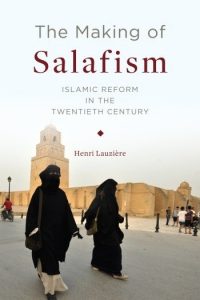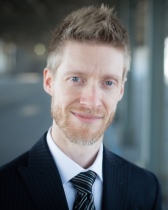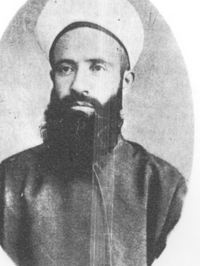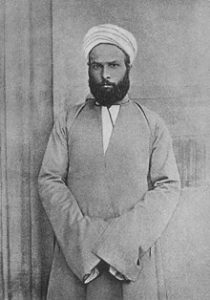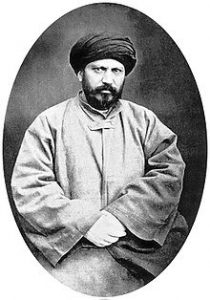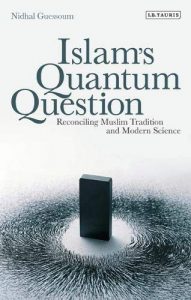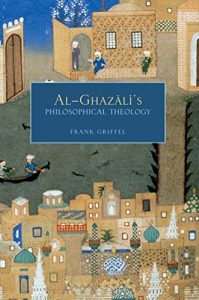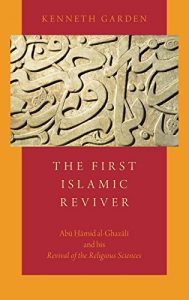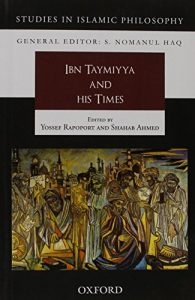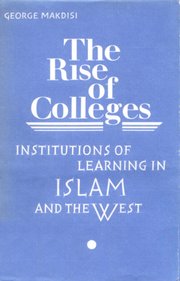
Mardin, Turkey
If Islamic teachings can be used to defend pluralism, that tells us something very important about the future of Islam. My views are not unique; they are similar to those of the great twentieth century Egyptian scholar Muḥammad ʿAbdallāh Drāz (1894 – 1958 CE), who defended a similar vision in many of his articles and books.
It is sometimes the case that the idea of pluralism is used by liberals and secularists to feign an attitude of open-mindedness that in reality hides their contempt for those who disagree with them. In the name of respecting the other side, they demand respect while reserving the right to give no respect in return where it matters. Conservatives are required to respect liberals in the name of pluralism, but the liberals often are quite incapable of realizing that these means they too should be respectful toward the conservatives.
Liberals, in the name of pluralism and diversity, often belittle and demonize the “outdated mullahs” and misogynists who supposedly represent the counterpart to liberalism. There is nothing wrong with pointing out the shortcomings in the views of conservative scholars. But when this comes from someone who has no empathy for them, who considers them an enemy to belittle and defeat, then what we are really seeing is a narrow-minded bigot who in the name of liberalism attacks his or her enemies. He or she demands respect but gives back respect only with the utmost reluctance.
The Middle East is full of intellectuals who speak of democracy, freedom and pluralism all the time while, at one and the same time, having the most militant and authoritarian attitude toward conservatives. In the name of liberal ideals, they claim to possess the moral superiority, to enforce their views on everyone who disagrees with them. That brand of secularism, the brand of Mustafa Kemal Atatürk, Mohammad Reza Pahlavi, Gamal Abdel Nasser and Michel Aflaq is familiar to most conservative Middle Easterners and is recognized for what it is; totalitarian, dehumanizing ideologies that think they possess the whole of the truth and are prepared to murder innocent men, women and children to get what they want.
But that closed-mindedness of the secularists should not make us dehumanize them the way they dehumanize us. This is where many Muslim intellectuals seem to be stuck, or at least were stuck in the 20th century. Conservative intellectuals belittled liberals for watering down the religion. Liberals belittled conservatives for being living fossils. And what neither side is capable of seeing is that there is one and the same attitude underlying the thinking of both sides. Saying this would shock both sides since they think they could not be more different from one another, and each thinks it will or should one day defeat or wipe out the other. That attitude is the anti-humanist attitude, and sadly this is where many are stuck.
It is the attitude that thinks it has the right to dehumanize and belittle the inner experience of other humans. Conservative intellectuals have no respect for the fact that a lifetime of experiences, learning and suffering may have led a liberal Muslim to where they are today. And liberal intellectuals have no respect for the fact that a lifetime of experiences, learning and suffering may have led a conservative Muslim or an outdated mullah to be where they are today. Neither side is willing to really, truly acknowledge the humanity of the other side. Listen to a conservative and it soon comes out in his speech that he does not see liberals and secularists as really human; they are “liberals” and “secularists”, a different, non-human species that is accorded no sympathy. And listen to liberal and the exact same thing comes out; they do not see that conservatives and mullahs are really humans: they are “conservatives” and “mullahs”, different, non-human species that deserve neither respect nor sympathy.
The two sides are unable to see that both of them are part of the problem and that there is a better way. It is to see the other side as made up of people just like yourself, it is to treat them according to the Golden Rule: treat your neighbor the way you like to be treated yourself. Rather than discounting the inner experience of our fellow humans—the validity of their thinking and their right to independence of mind and conscience—we should respect these things that they possess as much as we respect them in ourselves.
What stops many from having such an attitude is that to them the very reason they disagree with the other side is their own superiority of intellect and upbringing, which supposedly enables them to see truths the other, due to their stupidity, ignorance or corruption, cannot see. If they were to relent and give up this sense of superiority, this would be an admission of equality with other side; an admission that the other side’s truths are just as good as their own truths. But to them history is a battle to be win. Admitting that there could be any validity in the thinking of the other side is an admission that the other side has some good things about them. When you are trying to win a battle, the last thing you want to do is admit the humanity of the other side. You want to reduce them to pests and cockroaches that have to be wiped out. You want to keep the morale of your soldiers high by telling them how infinitely superior in every conceivable way your side is compared to the other side, and how it is destiny, history, God Himself who will ensure that your side will wipe out the other.
This battle mentality prevents both sides from seeing that there is a new, unexplored territory that is far superior to the grounds they fight for.
Pluralism without Relativism
The problem with real pluralism, that is, the humanist attitude, is that it seems to acknowledge that there are multiple truths; the other side can reach conclusions different from ours and yet be somehow “right”. How can that be when we believe there is only one truth that we all aim for?
All of us humans work toward discovering the truth. But due to our differences in talents, knowledge, circumstances and experiences, we often differ from one another in the things we observe and the conclusions we draw from them. Even though we all seek the truth, none of us can ever acquire the whole of the truth, unless we delude ourselves into thinking that we can somehow miraculously avoid all of the pitfalls and limitations of human understanding. Even though the truth is one, I might know only a small amount of it. And among the truths that I think I know, 80% might actually be really true and 20% might be false for all that I know. Below is a diagram to clarify this:

There is only one truth, represented by the circle, surrounded by falsehood, a sea of darkness, on all sides. The circle does not represent all of truth but important truths that we tend to disagree with others about. The green rectangle represents a human’s efforts at discovering these truths. They end up discovering some of them, but along the way they also pickup countless biases, prejudices and false beliefs and ideas that they think are true. That is the part of the rectangle that is in the gray area.
This person can have two attitudes about themselves: they can delude themselves into thinking that their viewpoint is entirely true, that their green rectangle is miraculously wholly within the light, or they can humbly acknowledge their limitations and say that they may be wrong about some things. Political authoritarians, whether conservative or liberal, think that their viewpoint entirely captures truth and avoids falsehood, or that through proper submission to their authority this can be achieved sooner or later.
Now we can add a second person’s views to the diagram, this time represented by the yellow rectangle:

Person B knows many of the real truths that Person A knows. This is represented by the area that is shared between the two rectangles inside the circle. Person B also shares some of the prejudices and false beliefs as Person A, represented by the gray area on the right, outside the circle, that is shared between the two of them. He or she also has some prejudices and false beliefs that Person A does not have, represented by the gray areas that are only in the yellow rectangle and not in the green rectangle.
But most importantly, Person B also knows much more of the truth than Person A, represented by the new light areas covered by the yellow rectangle. Person B is closer to the truth on many things than Person A is. If Person B continues on this path, if they continue studying and discovering, their rectangle may expand downwards as follows so that it captures more of the light:

In the meantime, Person A may, though reading bad sources and reaching bad conclusions from their experiences, may actually expand their rectangle into the darkness rather than into the light:

What that means is that Person A is now sure of many new “facts” that are actually falsehoods.
The horror of recognizing our inherently limited and biased viewpoints causes some people to recoil into the delusion that by defining a narrow set of criteria, they can miraculously acquire the whole of the truth, be safe from falsehood and be the possessors of a light that gives them the right to rule over over all who disagree with them. This is the myth behind both Marxism and militant Wahhabism. They both imagine that they possess all the important truths, believe that they are so safe from falsehood that it is only those who disagree with them who have prejudices and false beliefs. Wahhabis distort reality into this:

Marxists do the same:

In both ideologies, all that is outside the ideology is by definition false, evil, prejudiced, misguided. All that is inside is good, wholesome, light. Both believe that their ideology captures the whole of the truth and is free from error. No disagreement or difference with the ideology is allowed, because any disagreement is automatically considered to be in the sea of falsehood.
Pluralism and Islam
Below is a diagram that represents the reality of life; it represents many people all trying to discover the truth:

It is this picture that horrifies Wahhabis and Marxists into wanting to chop off all the bits that do not fit. How can we have any form of community or progress in a world so complex and diverse? The Wahhabi and Marxist answer is that we cannot, therefore we have to force one view on everyone. Some conservative Muslims also suffer from a similar attitude. They believe that a very strong promotion of conformity is the only way to protect the integrity of the Muslim community. Disagreement is strongly discouraged and even attacked because when an intellectual disagrees with the rest, he is weakening the embattled umma. In support of the umma, we are supposed to keep silent when our intellects and consciences would have us speak. Cowardice becomes virtue; the cowardly who do not speak the truth fit in perfectly, while the brave who speak against falsehoods are shunned and attacked for being troublemakers and threats to the umma.
The conformist assumption is that since “we” (the conformists) have the right ideas about religion and “they” do not, it is only right and just that “our” ideas should be forced on “them”. The question about who these people are who decide the truth for everyone else is not treated in detail, but it includes “me, my friends and everyone else who agrees with me.” We can call this the “top-down” approach to Islam; the idea that a minority should hold the reigns over the majority. They will be the benevolent dictators who tell everyone else what Islam should be. This is, of course, a self-elected priesthood, and it is what Wahhabism and Marxism share in common.
The numerous Islamist disasters of the past century should have been sufficient to convince most Muslims that the top-down, priesthood model is dysfunctional and impracticable, and perhaps most Muslims have been convinced. The alternative to the priesthood model is the ground-up (or grassroots) model, which is the model followed by the majority of Muslims worldwide (even though they do not talk about it), and it is also the model followed by Prophet Muhammad PBUH and his Companions. The ground-up model, rather than involving a minority that seeks to force its ideas on everyone else, is a model that seeks consensus with others. The Prophet PBUH did not say “I miraculously possess the truth, so do as I say or else!” The only person in Islamic history who could have claimed divine guidance for forcing his views on others refused to do so.
The Prophetic model was to seek to build a community through persuading other humans, while respecting their right to disagree with him, even to leave his community. His community was a consensual community in which everyone was persuaded of the truth of his message. In other words, his community functioned on the basis that humans can be persuaded of the truth without the necessity for authoritarian methods.
The experience of Muslim communities living in the West today lends the greatest support to the ground-up model. We do not have a religious authority enforcing its views on us. We do not have a morality police forcing our women to wear hijab. We listen to scholars coming from various schools of thought. People happily pray the noon prayer at one mosque and the evening prayer at another without caring much about whether the imam of the mosque follows one school or another. Most people could not care less whether the imam believes in the theological views of al-Ashʿarī, al-Maturidī or ibn Ḥanbal.
We have a community of democratic consensus in which we agree on the most important things without anyone having any authority to force his or her views on us. Any one of us could leave Islam at any time without facing any repercussions from a religious or political authority. The only way to make a member of this community do something or behave in a certain way is through persuading them. Our sheikhs do not have the power to whip men who fail to show up for the Friday prayers like the Wahhabi chief of the Shammar tribe used to do in 1840’s Arabia, yet our mosques are packed during those prayers.
Our community as a whole only acts communally on things upon which there is consensus (such as the obligatory nature of the Friday prayer), while leaving it to each person to act upon those things upon which there is no consensus. This freedom and lack of authority has not led to a “disintegration”, “corruption” or “decay” of our religion as conformists and authoritarians predict. Rather, it has led to a peaceful religious community that focuses on the most important things (worship and charity) while being largely free of religious strife. People eagerly read the works of classical scholars and attend lectures in which hadith narrations are explained. In an atmosphere that is free from authority, people, rather than abandoning Islam and forgetting about it, continue to hold on tightly to it.
The disagreements among the various Muslim schools of thought leads certain people to dream of the unity and political power that could be achieved if everyone agreed with everyone else. And a certain type of pathological personality takes this thinking to its extreme: unity and political power are the sole guidelines for Muslim existence; it is perfectly fine to oppress, restrict and terrorize every Muslim who disagrees with the version of Islam that Mr. Authoritarian and his friends cook up, and in this way a “unity” is achieved (that is in reality filled with hatred, fear and discontent) where no one dares to criticize the self-elected Muslim priesthood.
Communities of Consensus
Authoritarians think Islam needs political authority to keep its integrity. The experience of the Prophet PBUH and of Muslim communities throughout history shows that it does not. A community of consensus is not one where the same views are forced on everyone. It is where the Islamic and legal practices we follow are all derived from our shared agreement on them. Everyone follows Islam in their own way and according to their own conscience, but since Islam is derived from the Quran and the Sunna, their practice of Islam ends up being very similar in most regards to other people’s practice of Islam. In this way a community organically comes into being where, by the mere fact of everyone doing their best to follow Islam, they form a strong but peaceful community. There is no authority forcing its views on anyone. Everyone is treated as a respected and honored human who is doing his or her best to make sense of Islam and life.
Authoritarians might predict that this free atmosphere will lead to a situation where the community divides into many groups each of which has its own misguided interpretation of Islam, so that only a tiny minority remains who continue to hold onto the true religion.
But the question is whether that authoritarian prediction is factually accurate. Does it reflect reality? It is certainly true that there have been periods in which what are considered by most to have been misguided sects flourished, but to say that that happened because authoritarians were not there to save the day is to give preferential treatment to one explanation out of a dozen possible ones. It seems far more likely that the flourishing of misguided sects, similar to the flourishing of Marxism, came about because of authoritarianism not despite it; a small minority of authoritarians forced their corrupt views on everyone else and punished disagreement.
The ground-up model of Prophet Muhammad PBUH, the prophets before him, and mainstream Muslim communities shows the authoritarian prediction (that Islam will decay without authority) to be a fairy tale. Mosque after mosque after mosque in the West operates just like the mosques found in the East, despite our far greater freedom to change things and do whatever we like.
The reason is simple: humans are not animals. They are not sheep that need to be led by priesthood as authoritarians imagine. Humans, honored by God to the point that the angels bowed down to them, prefer to be on the side of the truth rather than falsehood once educated.
Prophet Muhammad’s attitude toward the people around him was the humanist attitude. It was to treat the people around him, Muslim and non-Muslim, as intrinsically worthy. When a person disagreed with him or even made fun of him, he did not attack and demonize them. He instead wished what is best for them. Why? An authoritarian will say the Prophet PBUH was acting like a politician, being nice, polite and forgiving not because he thought humans deserve such a treatment, but because this was the best way to manipulate them into becoming Muslim.
Authoritarians like many Wahhabis do not believe in the intrinsic worth of human life, therefore that is the only way they can explain the Prophet’s behavior and the behavior of the prophets before him; political manipulation. That is what they have reduced Islam’s beautiful moral and ethical teachings to. That is Islam according to these supposedly morally superior authoritarians who think they have the right to decide what Islam should be for everyone else.
Were the prophets nothing more than political manipulators when they were being kind to the disbelieving folk around them? Were the desperate efforts of Prophet Nūḥ (Noah) [as] to save his people from the flood by trying to persuade them to believe in God just him doing his job? Is it not more accurate to say that as a human, he had love and sympathy for these fellow humans and did not wish bad things to happen to them?
Was Prophet Ibrāhīm (Abraham) [as] merely doing his job as a political manipulator when he argued with God’s angels in order to protect a group of homosexual rapists from God’s punishment? Is it not far more likely that as a kindly and loving human he did not like the thought of these people suffering punishment, that he saw intrinsic worship in them despite being considered some of the worst sinners in existence? And even more importantly, God does not criticize him for arguing with His command, He praises him:
When Abraham's fear subsided, and the good news had reached him, he started pleading with Us concerning the people of Lot.
Abraham was gentle, kind, penitent.
“O Abraham, refrain from this. The command of your Lord has come; they have incurred an irreversible punishment.”
The picture we have here is of a human who loves his fellow humans, who wishes what is best for them, and wishes to avert harm from them even when God has declared that harm should come to them. And God does not blame him for this. He praises him for having sympathy for these sinners. He dedicates an entire verse of the Quran to praising him for his sympathy.
This is the example of our Prophet Ibrāhīm [as], the father of our umma as we call him during every prayer. Rather than being an authoritarian who gloated in destroying those who disagreed with him, he tried to protect the worst sinners from God’s punishment, going so far as to make a scene arguing with God’s angels.
If that is not one of the strongest affirmations of the humanist attitude then I do not know what can be.
Since people are intrinsically worthy, since they are honored by God, since they are sacred, since God praises our desire to protect sinners, then it logically follows that persuasion rather than force should be our method in our dealings with them. Since force is prohibited, the only way to build a Muslim community is through persuasion. Each member of the Muslim community is treated as intrinsically worthy regardless of their opinions. If that was Ibrāhīm’s attitude toward the worst sinners, it is far more imperative upon us to have a similar attitude toward those who believe in God and His Prophet PBUH.
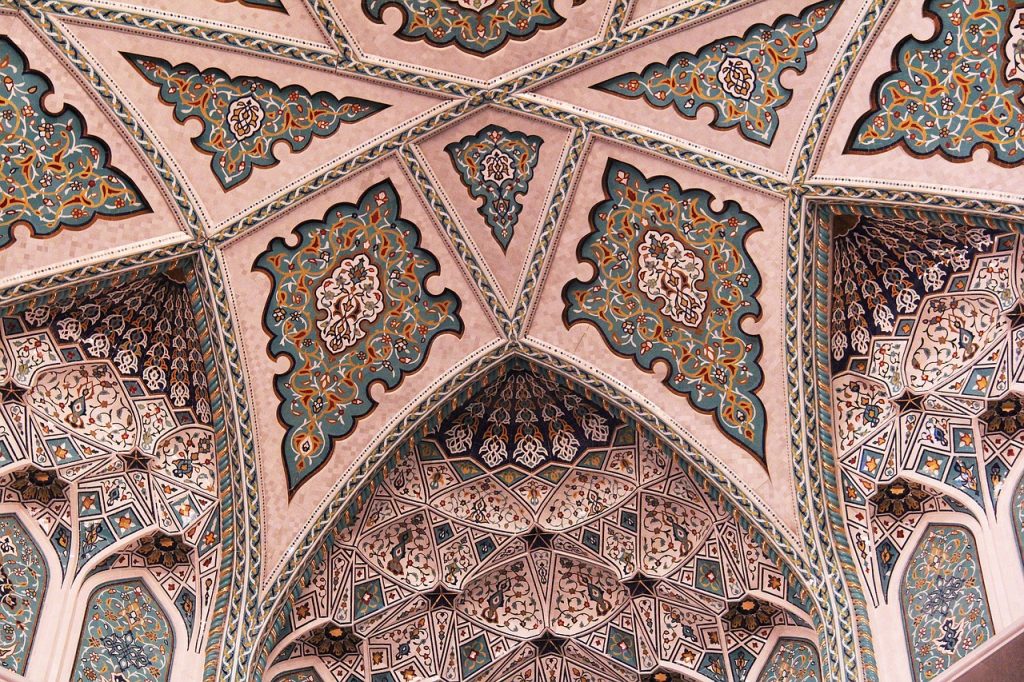
Sultan Qaboos Grand Mosque in Muscat, Oman
Organic Communities
My theory of the formation of Islamic communities is the complete opposite of the Islamist and authoritarian theories. When a group of people believe in God and His Messenger PBUH, they are naturally and organically inclined to form a moderate community that reflects the best teachings of Islam, without needing the services of authoritarians.
Authoritarians have an extremely low opinion of humanity, seeing most humans as something more akin to animals than humans who deserved the angels’ prostration. And their highness of their opinion of themselves is often in equal proportion to the lowness of their opinion of others. Such people exist everywhere, in all communities and religions. It is human nature to like to think highly of ourselves and lowly of those who disagree with us. Authoritarians are people immature and unscrupulous enough to take this to the extreme of turning themselves into demigods who miraculously possess the truth and who also possess the right to force this supposed truth on others.
My theory is that humans, by the mere virtue of being human, after accepting God and His Prophet PBUH, possess the right to read the Quran and hadith and other works and come to their own conclusions about them. This, rather than leading to disintegration in the community, leads to the formation of moderate communities, because all humans, once given the Quran and the Sunna, all slowly incline toward the same truth. Their humanity and their belief in God and the Prophet PBUH are what bind them into a community, not some authority that forces conformity on them.
This community has inertia of its own. An ultra-liberal Muslim who comes into the community and speaks of how gay marriage should be legalized, and a militant Wahhabi Muslim who comes into the community and speaks of how Muslims should be obsessing about political power night and day, get shunned by the community, the way an extended family shuns that annoying vegan relative who keeps lecturing everyone about his or her moral superiority. The community’s inertia is the product of human nature, the Quran, the Sunna and the opinions of respected classical and modern scholars. All of these things merge together and form a vague set of beliefs, manners and practices that most of the community shares.
Such a community has a natural inclination toward conformity, balanced by the fact that there is no authority forcing any single view on the members, so that each person differs in some ways in their views from those around them. The natural human desire to belong and fit within a community pulls the members toward conformity, while the natural human desire to have independence of mind and conscience pulls the members toward individualism. And the result is a balance between these two forces. We try to fit in as much as we can, doing our best to avoid offending others and trying to stay out of the line of sight of the community members who have a tendency to get ticked off easily. But in our private lives each person has his own favorite scholars and intellectuals. The Syrians and Egyptians at the mosque love Mohammed al-Ghazali and follow his style of Islam. The Turks love Said Nursî. The Pakistanis and Indians have their own scholars, often unknown outside of their cultures. The converts have their own style of Islam, often based in part on the thinking and ideas of high-profile converts who came before them.
Publicly, people try to fit in out of good manners. They do not voice their private religious opinions to avoid useless arguments. Privately, they enjoy freedom of intellect and conscience. And out of these two things a moderate and peaceful community is created.
Authoritarians think they can do better than the above through the use of force and manipulation tactics. In the West, since they cannot use force, their favorite tactic is appealing to authority. They attack Muslims who do not follow their versions of Islam by acting as if their opinions are the only possibly valid ones. They often speak of how there is ijmāʿ (“consensus”) that everyone should do what they say. This is often a downright lie, since there is often no consensus on even the simplest and most essential things within Islam, such as how to perform the ablution. Whenever they claim consensus on something, all it takes is a cursory look through the classical sources to find highly respected scholars who disagree with their view. Mention that to them and they will come up with some underhanded argument for why that scholar’s opinion does not count, even if they were quoting their opinion yesterday in support of a different supposed “consensus”.
There is also another consensus that I have already referred to, the organic consensus of the community. There is consensus among the members of every mainstream Muslim community on a great number of things. We believe that there is only one God and that the Quran transmits His uncorrupted words, that Muhammad was His last Messenger, that murder, stealing and adultery are wrong. A person who goes against these things can rightly be said to be outside the consensus of the community.
The Delusion of the Authoritarian Utopia
Authoritarians think that the community described is not good enough. They think that it would be so much better, people would be so much more united, if they were given free rein to dictate Islam to everyone else and manufacture consensus out of thin air on every big and small issue.
But let us say we do as they want. Let us give them free rein. What happens next? Does our love for Islam increase? Does our sense of unity increase? Do we start to love and appreciate one another more now that we have the One True version of Islam forced on all of us?
Of course not. In fact, quite the opposite happens. The culture of conformity that authoritarians promote means that the most dishonest and cowardly raise to the top. They have no firm principles of their own, so they are perfectly happy to fit in with the authoritarians to get privileges in return.
And as for the rest of the community, they continue to hold on to their own individual beliefs in private, but now they will be more careful in keeping their beliefs to themselves to avoid the attention of the authoritarians.
Rather than increasing unity, the authoritarians increase division. Some people, out of ignorance or self-interest, end up siding with the authoritarians, while others, out of conscientious difficulty with authoritarian beliefs and tactics, end up staying away from them as much as possible. The community is divided into two: the “career Muslims” who side with the authorities and derive power and privilege from this (as in Saudi’s Wahhabi ideologues and Iran’s Revolutionary Guards), and the ordinary Muslims who look on with dismay, keep quiet and keep following Islam in their own way in private as much as they can.
The Issue of Islamic Law (the Sharia)
Authoritarians often act as if there is an inherent conflict between living in a democratic and pluralistic society and the application of the Sharia, the implication being that 1. anyone who feels proud to be a citizen of a liberal democratic society is betraying the umma and 2. we should submit to whatever half-baked plan they have for implementing the Sharia (which often starts with the application of the punishments prescribed in it). The truth is that there is no conflict between democracy and the Sharia unless one is an authoritarian, whether a secularist authoritarian who wishes to force secularism on everyone, or an Islamist authoritarian who wishes to force Islam on everyone.
We do not have to submit to the views of either of these two immature sides. Rather, Muslims and non-Muslims can together create a constitution that applies to everyone in the country, Muslim and non-Muslim. Then, each city or state in the country should have the right to choose its own laws beyond the constitution, as is the case in the United States and many other countries. If there is a particular city or state that democratically chooses to implement the Sharia on its Muslim population, then I do not think most fair-minded and educated person would have a problem with that. And if there is a liberal city or state that does not want Sharia law, then the democratic process means that it will not get Sharia law.
Muslims, non-Muslims, conservatives and liberals can all sit down like mature humans and have an intelligent discussion on the best way to run their country that ensures the rights of everyone as much as possible. If most people’s basic assumption is that all humans are sacred and deserve protection and sympathy, then a fair and just system can be created that does not do injury to any group.
Respecting Muslims Who Disagree With Us
We can now go back to the question that this essay started with. What should be an educated and open-minded Muslim’s stance toward Muslims who disagree with them significantly?
Our stance should be the humanist, or Abrahamic, stance. They should be treated with respect and consideration regardless of their beliefs. They should not be insulted or demonized. But that does not mean that we should treat them as if their beliefs are just as valid as ours. We can point out why we disagree with them. We can politely debate them. We can politely but firmly prevent them from doing violence to our practice of Islam as discovered through the process of organic consensus. To give a dramatic example, a man who thinks he should have the right to pray naked at the mosque should be prevented from doing so. He has the right to make of Islam what he wants, and he has the right to defend his idea that prayer should be performed in nudity at the mosque, but he does not have the right to intrude upon the public manners and etiquette surrounding religion as developed through the process of organic consensus. He can start his own mosque and do that in it and see where that takes him. He does not have the right to force his religious views on others by claiming that his version of Islam is as valid as that which has been organically and democratically developed by the community over the years.
We can have a pluralistic Islamic society without becoming secularists. As long as secularism is not forced on us, our communities will naturally tend toward moderate, conservative Islam as is followed by the majority of Muslims worldwide. Human nature itself, with the help of the Quran and the Sunna, gravitates toward such an Islam.
It is not only secularists who should enjoy polite and respectful treatment. The same should apply to Muslims that we consider outdated, ignorant, or somewhat extremist and authoritarian. Whatever is wrong with them, they still deserve the same kindly attitude that Prophet Ibrāhīm had toward the People of Lūṭ (Lot). Whatever their mistakes, sins or deficiencies, they are still humans honored in the sight of God. It is not through insults and snarky attitudes that we can bring such people back to the path of moderation, it is through love, through making them feel appreciated and valued.
Authoritarians are afraid of the loss of power and authority that comes with letting every Muslim come to their own conclusions about Islam in complete freedom and independence. They want to control history so that things may go the way they want. They want, in short, to play God and determine humanity’s fate. But the burden of proof is on them to show that their thinking leads to a better and more pious Muslim community. It seems to me that it does not; it rather promotes dislike and hatred for Islam through their abuses of people’s rights and dignities.
Respecting Sectarian Muslims
Our attitude toward Muslims belonging to other sects can be the same as our attitude toward Muslims that do not perfectly fit in within our community (see above) and Christians (see below). They possess many of the truths we possess, and the fact of their humanity demands sympathy and respect.
Respecting non-Muslims
The same pluralist framework can be extended to non-Muslims. They too are sacred, even if they are engaged in what Islam considers the worst of sins; they are at least as sacred as Prophet Ibrāhīm considered the People of Lūṭ to be. Some Muslims are so distant from the Quran that they think it almost a betrayal of the umma to have respect and sympathy for non-Muslims when Islam’s great Patriarch, Ibrāhīm, had just such an attitude.
Non-Muslims too are truth-seekers. They have the right to examine the evidence that life presents to them and come to their own conclusions. This is why the Quran is adamant that religion should not be forced on people. Rather than treating non-Muslims as misguided and twisted people, we should treat them as fellow humans, sacred and deserving of protection and sympathy. They too have some view of the truth even if we assume it is a narrower vision than ours, and there should be nothing too surprising in some non-Muslims knowing some truths that some Muslims do not know.

The above diagram represents the efforts of a Muslim (green), Christian (blue) and atheist (yellow) at discovering the truth (of course, as viewed from an Islamic perspective). They all appreciate and agree on certain truths (for example, perhaps the fact that humans are sacred and should not be murdered without due cause and process). They also share some of the same false beliefs. In the diagram, the Muslim person has a better view of the truth than either. The atheist has only a small view. That is not to say that every Muslim has a superior view of the truth compared to every Christian, or that every Christian is superior to every atheist in this regard. And as already mentioned these truths are the important things in life that we sometimes disagree on. An atheist may know many facts about a field of science; that is not our concern here.
The atheist novelist Terry Pratchett (died in 2015) made many fair and occasionally unfair criticisms of religious people in his novels. But he believed in the sanctity of human life, saying that the objectification of humans is one of the greatest evils (or the root of all evil). This is an incredibly important truth, defended in the Quran in this way:
Because of that We ordained for the Children of Israel: that whoever kills a person—unless it is for murder or corruption on earth—it is as if he killed the whole of mankind; and whoever saves it, it is as if he saved the whole of mankind. Our messengers came to them with clarifications, but even after that, many of them continue to commit excesses in the land.
The above verse, as has been realized by interpreters, is telling us that human life has infinite worth. Regardless of how large the population becomes, killing a single human is as evil as killing all of humanity. This means that there is something special, sacred, about humans. Terry Pratchett, in recognizing this essential truth and defending it, is morally superior in this regard to any Muslim who does not believe in the sanctity of human life and justifies murder in the name of Islam.
Despite our differences with non-Muslims, they are still our brothers and sisters, since we are all Children of Adam as the Quran constantly reminds us. Our attitude toward them should be the same as the attitude of the Prophets toward humanity; and attitude of respect and sympathy, not out of a desire to manipulate them, but because this is the right and just way to treat humans.
Conclusion
Muslim unity will not come about through force, but through love and sympathy. Muslims, by the virtue of being humans, have a natural tendency toward creating communities of consensus that practice moderate, conservative Islam without the need for authority.
Authoritarians are mistaken in their belief that their services are needed to guide Islam. Empirical reality proves their views false; the world is full of highly faithful and devout Muslim communities that have no authority forcing any version of Islam on them.
Our appreciation for the sanctity of human life, our sympathy for our fellow humans, and the guidance of the Prophets should form the basis of how we relate to everyone around us. People are to be respected regardless of their beliefs, unless they try to force their beliefs on others, in which case they are to be stopped. Our communities should be tolerant toward both ultra-liberal and ultra-conservative Muslims who do not fit in very well within the moderate Islam of the community as long as they do not try to do violence to the community.
Our attitude toward non-Muslims should be one of respect and sympathy, not one of belligerence. It is true that not all non-Muslims are nice and respectful people. I do not call for naive trust in non-Muslims or for being desperate to live up to their expectations. We treat them according to what we know to be right and just, and part of that is respect and sympathy toward those who mean us no harm.
As for those who have not fought against you for your religion, nor expelled you from your homes, God does not prohibit you from dealing with them kindly and equitably. God loves the equitable.
But God prohibits you from befriending those who fought against you over your religion, and expelled you from your homes, and aided in your expulsion. Whoever takes them for friends—these are the wrongdoers.

Reader Questions
Is Islam really pluralistic? I've been wondering this for a long time. If so then why does Allah speak harsh against other religions, and the ahadith too?
God’s business with humanity is one thing, our business with humanity is another. God judges humanity and deals with them according to His justice and mercy. He does not give us the right to become judges over humanity and decide who gets to live and who to die, who gets blessings and who gets punishments. The way we deal with humanity is based on the laws and ethics He defines for us, not according to what we think God thinks about certain people. You might think your neighbor is a great sinner, but you have no right to take their judgment and punishment into your own hands. If they break the law, then the law will deal with them. If they do not break the law, then it is God’s business to judge them and deal with them.
As almost any mainstream scholar will tell you, the Quran does not forbid us from living peacefully in pluralistic societies, and this is the opinion reached by the majority of Muslims. A minority of Muslims, those with authoritarian personalities, disagree and think that their version of Islam should be forced on everyone. By what right? Because they supposedly possess truths that 99% of Muslims, including the best educated and most knowledgeable among them, do not possess.
So the first step in their thinking is to dismiss, demonize and dehumanize the majority of Muslims. This enables them to claim the right to be the ones who decide what is true and what is false and to be the juries, judges and executioners over everyone else in society.
Needless to say, it is only a very small minority of often mentally disturbed people who think like that. Islam does not have a pope or priesthood, therefore no one can ever rightly claim to possess the right to define religion for others. The practice of Islam is not based on an authority that defines religion (except in a few authoritarian countries like Saudi Arabia, or in Shia Islam where the Grand Ayatollahs have the authority to define religion). The practice of Islam as seen throughout the world is based on organic consensus, the fact of many people all coming to the same conclusion in complete freedom of mind and conscience. No one is forcing the mainstream mosques in London to all pray in the same way, yet that is just what happens. In Christianity, we have a situation where different groups are constantly splintering off from one another. In mainstream Islam we have quite the opposite situation: we have a vast amount of diversity throughout the Islamic world, yet we are all constantly gravitating toward that organic consensus I mentioned, where we agree with other Muslims on the most important things in our religion.
That is one of the reasons why Sunni Islam is the largest religion in the world (1.5 billion, compared to 1.2 billion for Catholic Christians). Sunni Islam cannot splinter like Christianity because it is entirely made up of splinters. Each individual makes his or her own Islam through what they learn from the Quran and the Sunna. Each person, in complete freedom of mind and conscience (except in certain authoritarian cultures) examines Islam’s texts and reaches largely the same conclusions as everyone else (with some usually unimportant differences). This gives us Sunni Muslims the incredible privilege of being able to go to almost any mosque in the world and feel at home there; we know that the people of that mosque went through the same process we went through and reached largely the same conclusions, and that regardless of what mosque we go to, there are usually some people who will largely agree with our views.
Making sense of the hadith literature is like trying to solve a puzzle, there are thousands of pieces of varying authenticity (even narrations that are considered ṣaḥīḥ themselves vary greatly in their authenticity). To make sense of things, scholars have to sit down and bring together all relevant narrations on any issue and try to make a unified system out of them. And when it comes to the issue of pluralism, every mainstream scholar who has sat down to do this work has come to the same conclusion, which is that Islam is not opposed to pluralism. The exception are those who have authoritarian personalities and wish to make a case for forcing their version of Islam on everyone, so what they do is cherry pick a dozen narrations and verses of the Quran, say that those verses of the Quran that get in their way are “abrogated” so that they can ignore them, and in this way they reach the conclusion they started with, which is that they have the right to force their version of Islam on everyone else. And to explain why most scholars disagree with them, they say that most scholars are misguided or hypocrites. Since they cannot prove their case through reasoned argument, they resort to demonizing those who disagree with them.
If we study the history of Islamic societies, we will find that mainstream Muslim societies everywhere have been extremely pluralistic. Whether you look at the Abbasid Empire, Muslim Spain, India’s Malabar coast, Java or Malaysia, you will find that for most of their histories they were extremely pluralistic. People of all kinds of beliefs and leanings lived side by side together without wanting to do violence to each other. The default attitude of Muslims toward non-Muslims has been one of “live and let live.” There has always been an authoritarian minority that has desired to force everyone to become “better” Muslims and to force non-Muslims to become Muslims. Every society, Muslim and non-Muslim, has these authoritarians who think that the world would be so much better if they could force their opinions on others. But the reality of Muslim life has always been one of pluralism except for those rare but disastrous instances when religion and politics became united, so that an authoritarian person tried to force his religious views on others. We have the example of the Abbasid caliph al-Maʾmūn’s Miḥna (Inquisition) which tried to force Muʿtazilī theology on everyone. We also have the example of Ibn Abdul Wahhab who allied himself with the Saudi family and in the name of spreading “true” Islam justified the slaughter of tens of thousands of innocent Muslims.
But those disasters are the exception that proves the rule. For every million Muslims who live under an authoritarian version of Islam we have 99 million who live in pluralistic Muslim societies. There is still work to be done to protect things like free speech and the rights of minorities in these societies, and there are cases of unjust persecution (or rather useless blasphemy laws). But anyone who has lived in Egypt, Iraq, Syria or Turkey knows that you run into the most atheistic and anti-religious individuals every day without anyone trying to do them harm. Almost all of the Middle East’s universities invariably have some secularist professors who show the greatest disdain for religion without anyone getting in their way or trying to harm them. The community I grew up in in Iraq’s Kurdistan region, which is supposed to be 98% Muslim, is full of atheists and secularists who make anti-religion posts on Facebook on a daily basis (and get upset when no one takes them seriously) . Islam’s detractors focus on the 1% of bad cases, ignore the 99% of peaceful and pluralistic Muslim societies, then tell us that Islam promotes intolerance.
Islam’s detractors blame the problems of the Middle East on Islam, ignoring the fact that Christian Latin America suffers from almost exactly the same problems everywhere. Latin America has dysfunctional democracies, far more child marriages than the Middle East, orders of magnitude more crime than the Middle East (Brazil’s murder rate is 29, Egypt’s is 2.51), a far more serious rape problem (Brazil’s rape rate is 37, Morocco’s is somewhere between 2 and 4), and honor killings. Where is the outcry against Christianity for promoting such things? According to Islam’s detractors, Latin America’s people are humans and have human problems, while the problems of Muslim societies are invariably blamed on Islam. These detractors are in general incapable of realizing that by their type of twisted thinking Latin America’s problems could be blamed on Christianity. And when it is pointed out that Muslim-majority countries like Iran, Turkey and Malaysia are far ahead of most of Latin America’s Christian countries when it comes to scientific research and technological innovation, you will see them switch gears and explain why the good things in Muslim societies are despite Islam.
So when it comes to the issue of pluralism we have the majority of Muslim scholars and intellectuals, who have all independently come to the conclusion that there is no conflict between Islam and pluralism today, and then we have an authoritarian minority who think that Islam is anti-pluralistic, and since they do not have any convincing evidence for their opinions and know that they cannot win in a fair and open debate, they resort to personal attacks against the majority. In the pluralistic majority we have all kinds of opinions; liberals, conservatives, moderates, Salafis. What unites them all is their unwillingness to use force on others. They are all happy enough to live in relative peace and prosperity and leave matters of governance to the experts and politicians.
Who to ask?
When it comes to questions like “Is Islam pluralistic?” it is important to separate the views of the average Muslim from the views of educated Muslims who are actually familiar with the Quran and Prophetic Traditions. Uneducated Muslims might ignorantly think that it is part of their religious duty to support forcing everyone to wear hijab and making the Sharia the law of the land. Asking such people about pluralism will not lead to any useful results about the nature of Islam. It would be similar to going to the backward parts of the United States, such as West Virginia, and finding random Christians and asking them whether ideally the Christian Church should make the laws of the land and many will likely agree that this is a good idea. Or we can ask them whether the hijab should be prohibited, or whether building mosques and synagogues should be prohibited, or whether all religions besides Christianity should be prohibited, and we will probably find many who say “Yes!” to these things. It would be highly unfair to consider these opinions as representative of Christianity.
To get an accurate idea of what Christians think about these matters, we have to find educated Christians; pastors, priests, and well-educated faithful Christians (architects, doctors, others with post-graduate degrees), people who have read more than a few books in their lives. And if you ask these people about the Christian view on pluralism, then you will generally get intelligent and sophisticated answers in support of it.
We should do the same when asking Muslims about these things. I’ve never met a Muslim doctor or architect, or a Muslim with a degree in Islamic studies, who supports the authoritarian side. People capable of reading Islam’s literature and judging it for themselves almost all invariably come to the same conclusions as everyone else. Rather than asking random people on the street or listening to random keyboard jihadists on the Internet when it comes to the issue of pluralism, we should listen to well-educated and well-respected scholars and intellectuals, and it is a blindly obvious fact that throughout the Muslim world, from Malaysia to Morocco, almost all of them agree on Islam’s compatibility with pluralism. This is not because almost every Muslim who knows the Islamic tradition is corrupt or a hypocrite (as authoritarians claim). It is because when someone tries to come to terms with all of the complex and contradictory pieces of evidence that we have, we are forced to admit the limits of our knowledge and the great amount of freedom and diversity that is possible within Islam.
People like the Taliban, who were taught Wahhabism in schools founded by Saudi Arabia in Pakistan, short-circuited this process of discussion and free examination of evidence and used funding and weapons provided by the CIA to take over Afghanistan. The nice Americans knew exactly what they were doing. As admitted by the mastermind of the plan, Zbigniew Brzezinski, they wanted to use these Muslims as bait (and paid them hundreds of millions of dollars annually) to make the Soviet Union invade Afghanistan, and that is just what happened. Somewhere between 500,000 and 2 million innocent Afghans died in this Machiavellian plan to further US interests by weakening the Soviet Union. (See America’s War for the Greater Middle East: A Military History by professor Andrew J. Bacevich).
